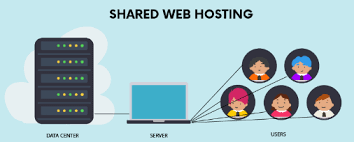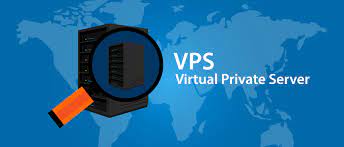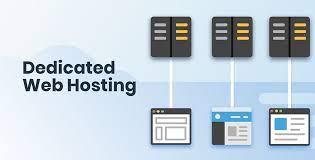In the fast-paced digital landscape, having a robust online presence is crucial for businesses and individuals alike. One of the key components of a successful online venture is choosing the right hosting solution. From shared hosting to dedicated servers, the options can be overwhelming. In this article, we’ll guide you through the journey from shared to dedicated hosting, helping you find the perfect solution for your needs.
Shared Hosting: A Cost-Effective Start

Shared hosting is like renting a room in an apartment – you share resources with other tenants. It’s an excellent starting point for small websites and businesses with modest traffic. Shared hosting is cost-effective and user-friendly, making it an ideal choice for beginners. However, as your website grows, you may encounter limitations such as slower loading times and restricted customization options.
Virtual Private Server (VPS): Bridging the Gap

As your website gains traction, upgrading to a Virtual Private Server (VPS) might be the next logical step. A VPS provides a dedicated portion of a physical server, offering more control and resources than shared hosting. It bridges the gap between shared and dedicated hosting, providing scalability and flexibility. With a VPS, you have the autonomy to install custom software and configure server settings to better suit your needs.
Dedicated Hosting: Unleashing Maximum Performance

For websites experiencing high traffic and demanding performance, dedicated hosting is the ultimate solution. With a dedicated server, you have an entire physical server exclusively for your website. This ensures maximum performance, security, and customization options. Dedicated hosting is ideal for resource-intensive applications, large e-commerce sites, and enterprises with stringent security requirements.
Factors to Consider:
- Traffic and Performance Requirements:
Assess your website’s current and expected traffic. If you anticipate substantial growth, a dedicated server might be the best long-term solution. - Budget:
Determine your budget constraints. While shared hosting is budget-friendly, dedicated hosting comes at a higher cost. Consider the value and features each option provides relative to your financial capacity. - Technical Expertise:
Evaluate your technical skills. Shared hosting and managed services are more user-friendly, while dedicated hosting requires a higher level of technical expertise for server management. - Security Concerns:
For websites handling sensitive data or transactions, dedicated hosting offers enhanced security features and isolated environments, reducing the risk of security breaches.
Conclusion:
Finding the right hosting solution is a critical decision that directly impacts your online presence. Whether you’re starting with shared hosting, transitioning to a VPS, or opting for the power of dedicated servers, understanding your needs and growth trajectory is essential. By carefully considering factors such as traffic, budget, technical expertise, and security requirements, you can make an informed choice that propels your website to new heights. Choose wisely, and let your hosting solution evolve with the success of your online venture.


